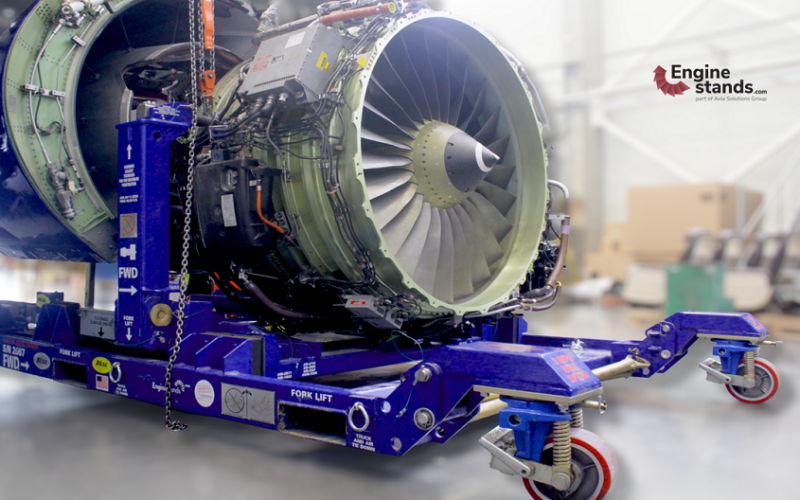According to the report by The Business Research Company, the aircraft engine market is poised for significant growth in the coming years, with a forecasted increase from $37.21 billion in 2022 to $46.32 billion in 2027, mainly driven by the CFM and IAE engine segments, which are expected to grow the fastest. With a growing market and older engines requiring more maintenance, a corresponding rise in demand for MRO shop visits can also be anticipated. And with that, the need for high-quality engine stands for these aircraft engine types will also increase.
Research suggests that even before the pandemic, CFM56 shop-visit slots were some of the most sought-after in the engine overhaul market and now, with a steadily growing engine stand market, the demand for engine MRO is projected to rise even further. However, this increased demand can pose several challenges, including longer wait times for maintenance slots, increased AOG times, rising maintenance costs, a shortage of qualified staff, and difficulties in acquiring necessary engine parts and quality tools for maintenance procedures.
“This all boils down to efficiency and cost optimisation”, explains Toma Matutyte, CEO of Enginestands, an international aircraft engine stand and aircraft tools leasing service provider. “To ensure that maintenance services are completed on schedule and do not experience delays, MRO organisations must be well-prepared. This includes having appropriate engine stands for different engine types as failing to offer correct engine stand for maintenance services might have negative consequences.”
Using a type-accurate engine stand can offer numerous advantages for MRO service providers, including improved safety and efficiency, faster turnaround times, and cost savings. “As aircraft engines are some of the most expensive aircraft parts, it is critical to handle them with the utmost care and attention,” Matutyte claims. “By prioritising the safety of valuable assets and the well-being of staff performing the maintenance, while providing timely and efficient services, MRO organisations can ensure that their clients receive the highest quality maintenance possible.”
Although aviation industry trends may shift over time, it is highly unlikely that the demand for aircraft engine maintenance will decrease. This presents an excellent opportunity for MRO organisations to start preparing for the inevitable market growth and ensure the long-term sustainability of their operations. By taking proactive steps to address the challenges associated with increased demand, MRO providers can position themselves to meet the needs of their customers and maintain a competitive advantage in the industry.

